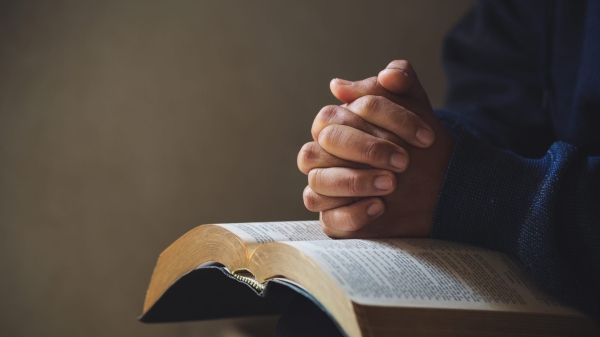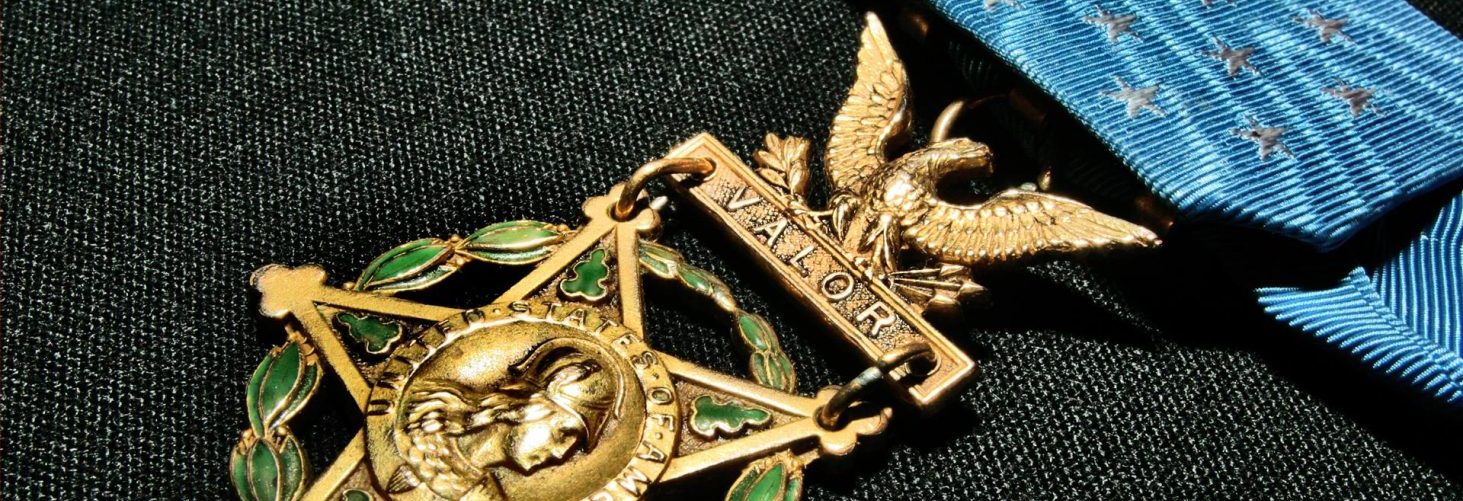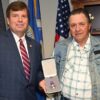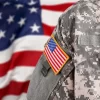By Brandon Moseley
Alabama Political Reporter
The Alabama House of Representatives on Tuesday passed resolutions honoring Alabama’s three living Congressional Medal of Honor recipients.
Lt. Colonel James “Mike” Sprayberry could not attend; but sent his regards to the Legislature, Captain Mike Rose and Command Sergeant Major Bennie Adkins were both in attendance.
Speaker of House Mac McCutcheon, R-Monrovia, thanked all of Alabama’s veterans for their service.
“Our country is better off because of people like you,” McCutcheon said. “Thank you so much for being with us today.”
Captain Gary Michael Rose from Huntsville was recently awarded the Medal of Honor by President Donald Trump for his service on a mission in Laos during the Vietnam War. The mission had been classified for many years as the U.S. action in Laos was secret at the time.
In 1970, Rose was a sergeant assigned to the Military Assistance Command, Vietnam – Studies and Observations Group, 5th Special Forces Group. While serving as a medic with the 5th Special Forces Group, Rose displayed extraordinary heroism in combat and repeatedly put his life on the line to aid his comrades, even after he was seriously wounded. Rose is credited with treating more than 60 wounded soldiers during the mission. Rose was one of 16 Green Berets that joined over 100 indigenous soldiers on a mission deep inside enemy territory. Rose maintained a code of silence about the mission for over 20 years while the action was classified.
President Barack Obama awarded Sergeant Major Bennie G. Adkins of Opelika, Alabama, the Medal of Honor for his service in the Vietnam War, Then-Sergeant First Class Adkins was serving as an Intelligence Sergeant with Detachment A-102, 5th Special Forces Group, 1st Special Forces at Camp A Shau, in the Republic of Vietnam.
When Camp A Shau was attacked by a large North Vietnamese and Viet Cong force Adkins rushed through intense enemy fire and manned a mortar position defending the camp. He continued to mount a defense even while incurring wounds from several direct hits from enemy mortars.
Upon learning that several Soldiers were wounded near the center of camp, he temporarily turned the mortar over to another Soldier, ran through exploding mortar rounds and dragged several comrades to safety.
As the hostile fire subsided, Adkins repeatedly exposed himself to sniper and mortar fire, while moving casualties to the camp dispensary. Adkins exposed himself to enemy fire transporting a casualty to an airstrip for evacuation. He and his group then came under heavy small-arms fire from members of the Civilian Irregular Defense Group, which had defected to fight with the North Vietnamese.
Adkins maneuvered outside the camp to evacuate a seriously wounded American and draw fire away from the aircraft, while successfully covering the rescue. Later, when a resupply air drop landed outside of the camp perimeter, Adkins again moved outside of the camp walls to retrieve the much-needed supplies. The next day enemy forces launched their main assault. Within two hours, Adkins was the only defender firing a mortar.
When all mortar rounds were expended, Adkins began placing effective recoilless rifle fire upon enemy, as they infiltrated the camp perimeter and assaulted his position. Despite receiving additional wounds from enemy rounds exploding on his position, Adkins fought off relentless waves of attacking Viet Cong.
Adkins then withdrew to regroup with a smaller element of Soldiers at the communications bunker. While there, he single-handedly eliminated numerous insurgents with small-arms fire, almost completely exhausting his supply of ammunition. Braving intense enemy fire, he returned to the mortar pit, gathered vital ammunition and evaded fire while returning to the bunker.
After the order was given to evacuate the camp, Adkins and a small group of Soldiers destroyed all signal equipment and classified documents, dug their way out of the rear of the bunker, and fought their way out of the camp. Because of his efforts to carry a wounded Soldier to an extraction point and leave no one behind, Adkins and his group were unable to reach the last evacuation helicopter.
Adkins then rallied the remaining survivors and led the group into the jungle, where they evaded the enemy for 48 hours, until they were rescued by helicopter.
Retired Army Lt. Col. James “Mike” Sprayberry was awarded the Medal of Honor for his service in the Vietnam War by President Richard Nixon. In 1968 was a First Lieutenant with D Company, 5th Battalion, 7th Cavalry Regiment, 1st Cavalry Division (Airmobile) during Operation Delaware in the A Shau Valley. As the company’s executive officer, Sprayberry organized and led a volunteer night patrol to relieve one of the company’s platoons that had been cut-off and surrounded by an enemy force whose heavy fire had prevented an attempted rescue of the platoon’s many wounded. Sprayberry neutralized several enemy forces, and then continued to safely direct the isolated men to his position.
While evacuation of friendly forces was underway, he returned to the rescue party, established security and helped move the wounded. Over a seven and a half hour rescue period, he saved the lives of numerous fellow Soldiers. During the battle, Sprayberry personally killed 12 enemy soldiers, eliminated two machine guns and destroyed numerous enemy bunkers.
Thursday was Military and Veterans appreciation day for the House.
“We had Military and Veterans Day in the House today despite the cold/bad weather,” Rep. Will Ainsworth, R-Guntersville, said on social media. “Highlight of my day was getting to honor three Medal of Honor recipients from our state.”
The House will not hold any meeting on Wednesday because of severe winter weather coming through the area. The House will reconvene at 1:00 p.m. on Thursday. Some house committees may hold meetings on Thursday morning at the discretion of their committee chairs.


















































